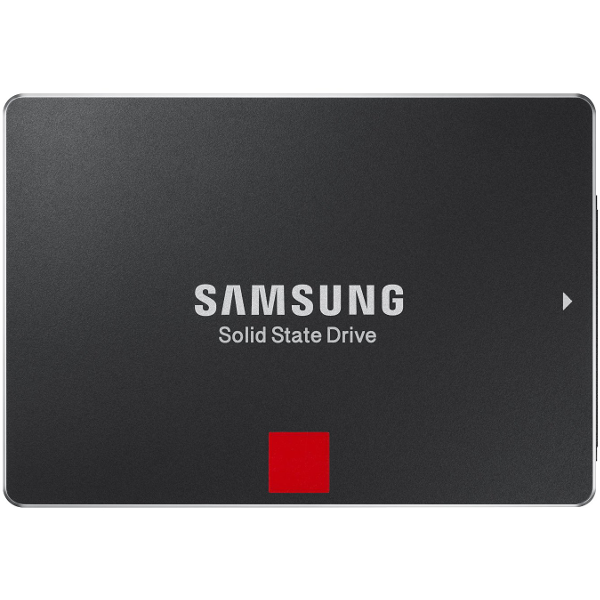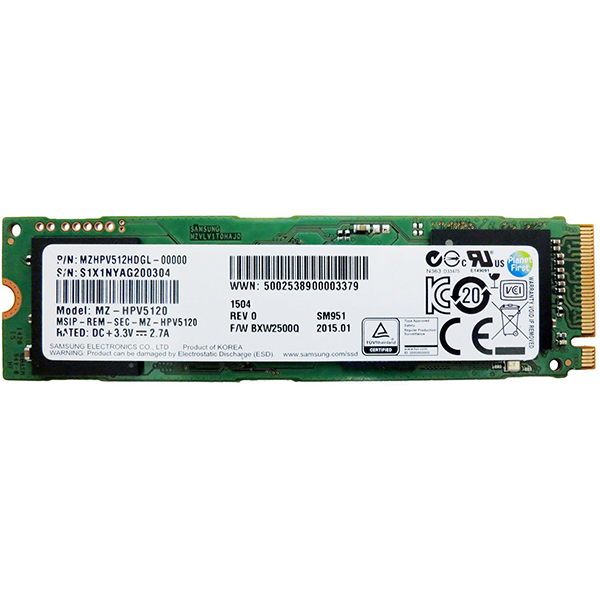Samsung SM951-NVMe Versus AHCI Versus SATA 850 Pro
Why you can trust Tom's Hardware
Technical Specifications
The AHCI-based SM951 doesn't actually have AHCI in its product name. The new NVMe-capable drive does, though (SM951-NVMe). Keep that in mind when you place your order.
MORE: Best SSDs For The MoneyMORE: How We Test HDDs And SSDs
MORE: All Storage Content
As you can see, the PCIe-based SM951s are up to three times faster than the SATA 6Gb/s-attached 850 Pros in certain categories. We've already covered the Samsung 850 Pro in detail here, and the SM951 AHCI here and here. With that said, let's focus on the SM951-NVMe.
Faced with sequential data, the SM951-NVMe is only a little faster than the AHCI models. The real performance increase comes from reading random data. The SM951 (AHCI) spec sheet claims up to 90,000 random read IOPS. That's less than the 850 Pro, which tops out at up to 100,000 IOPS. Although we managed to pull more random read IOPS from the AHCI drive, it couldn't come close to the SM951-NVMe's claimed 300,000 random read IOPS.
Random write IOPS also improve. The 256 and 512GB SM951-NVMes deliver up to 100,000 IOPS. The smaller 128GB model peaks at 83,000 IOPS. Those numbers are up from the 70,0000 IOPS figure that Samsung ascribes to the SM951 AHCI.
We believe Samsung stopped measuring IOPS performance at queue depth of 32 (SATA's limit). Why do we think this? At higher queue depths, we measured the SM951 AHCI in excess of 160,000 random read IOPS. And using a single worker, we were not able to match Samsung's SM951-NVMe spec of 300,000 IOPS.
Recently, we published data showing the SM951 AHCI we pulled from a Lenovo Ultrabook was slower than the same drive purchased from RamCity. Lenovo has since updated its firmware, though, bringing performance up to the expected levels. You can find that firmware here for SM951 SSDs purchased in Lenovo notebooks.
Get Tom's Hardware's best news and in-depth reviews, straight to your inbox.

Chris Ramseyer was a senior contributing editor for Tom's Hardware. He tested and reviewed consumer storage.
-
Amdlova hpv-2560 is rated 1.9A and the another one VPV-2560 is 2.7A Maybe you guys need test the power consumption.Reply -
atheus I find the preamble about comparing these M.2 drives to regular SATA drives a little odd. When SSD's first came out, of course they were compared to HDD's because that was precisely the question of the moment — how much more performance can one expect from the more expensive SSD's. With this new generation of SSD's, it's only natural to want to see them compared to the old, cheaper stuff. How else are we going to evaluate whether it's worth it to upgrade?Reply
If it only resulted in an extra 10% on a real-world test, then it wouldn't make any sense to spend double or more on a NVMe drive. With these solid numbers, though, the massive performance leap will be well worth the cost for those who can afford it. -
TechyInAZ Looks great! NVMe is defiantly the ideal solution for users that need high speed/responsive storage.Reply
I wish you guys would of compared this NVMe SSD to the Intel NVMe SSD that just came out. -
CRamseyer The Intel SSD 750 and the Samsung SM951-NVMe will show up side by side soon in another review.Reply -
CRamseyer Test systems: http://www.tomshardware.com/reviews/how-we-test-storage,4058.htmlReply
All three drives were tested in the PCIe test system. They are the only systems setup for testing queue depths beyond 32. -
dwnelson I'm sad the real world chart is misleading. If you show seconds instead of MB/s you'd see it doesn't justify the cost. Sad.Reply -
BoredErica ReplyThe Intel SSD 750 and the Samsung SM951-NVMe will show up side by side soon in another review.
That is a natural comparison and I look forward to reading it.

